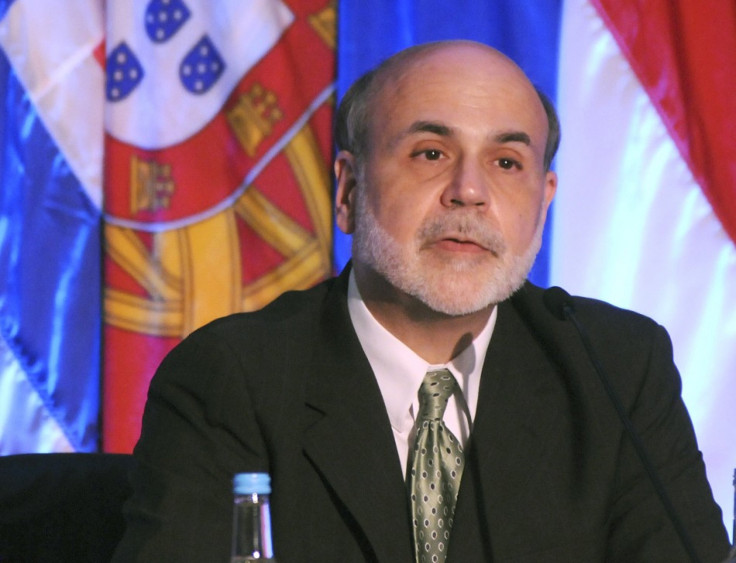No hint of QE3 though growth, employment figures disappoint Bernanke

Federal Reserve Chairman Ben Bernanke on Tuesday acknowledged the fact that the economy has slowed down, but offered no hint that the U.S. central bank might be considering any more stimulus to accelerate growth.
He also has warned members of Congress who might be planning on aggressive budget cuts, that the action has the potential to derail the recovery, if cuts in government spending take hold too soon.
A recent spate of weak economic data, capped by Friday's report showing anemic job creation last month, had renewed speculation that the Fed might again come to the economy's aid.
Bernanke gave no such indication but he did say that the recovery was fragile enough to warrant keeping in place the extraordinary monetary support the Fed has already provided.
Speaking at a bankers' conference, the Fed chairman said he expects the economy to strengthen in the second half of the year, but the job market needs close monitoring. The economy is still producing at levels well below its potential, he said. Consequently, accommodative monetary policies are still needed.
Bernanke repeated his view that a spike in U.S. inflation, while worrisome, should prove fleeting as commodity prices moderate. In addition, weak wage growth and stable inflation expectations should help keep prices down, he said.
The central bank has already slashed overnight interest rates to near zero and purchased more than $2 trillion in government bonds to pull the economy from a deep recession and spur a recovery.
With the central bank's balance sheet already bloated, officials have suggested there would be a high bar for any further Fed easing. The Fed's current $600 billion round of government bond buying, known as QE2, is due to end this month.
Sharp criticism in the wake of QE2 is one factor that is likely to make policymakers reluctant to push for QE3.
QE3 is still not an option right now, more because of the political ramifications, said Kathy Lien, director of currency research at GFT in New York. We need to see much more significant deterioration in the economy and consistent weakness in non-farm payrolls before that can happen she added.
In a Reuters poll of U.S. primary dealer banks conducted after the employment data, analysts saw only a 10 percent chance for more government bond purchases by the Fed. They also pushed back the timing of an eventual rate hike further into 2012.
© Copyright IBTimes 2025. All rights reserved.





















